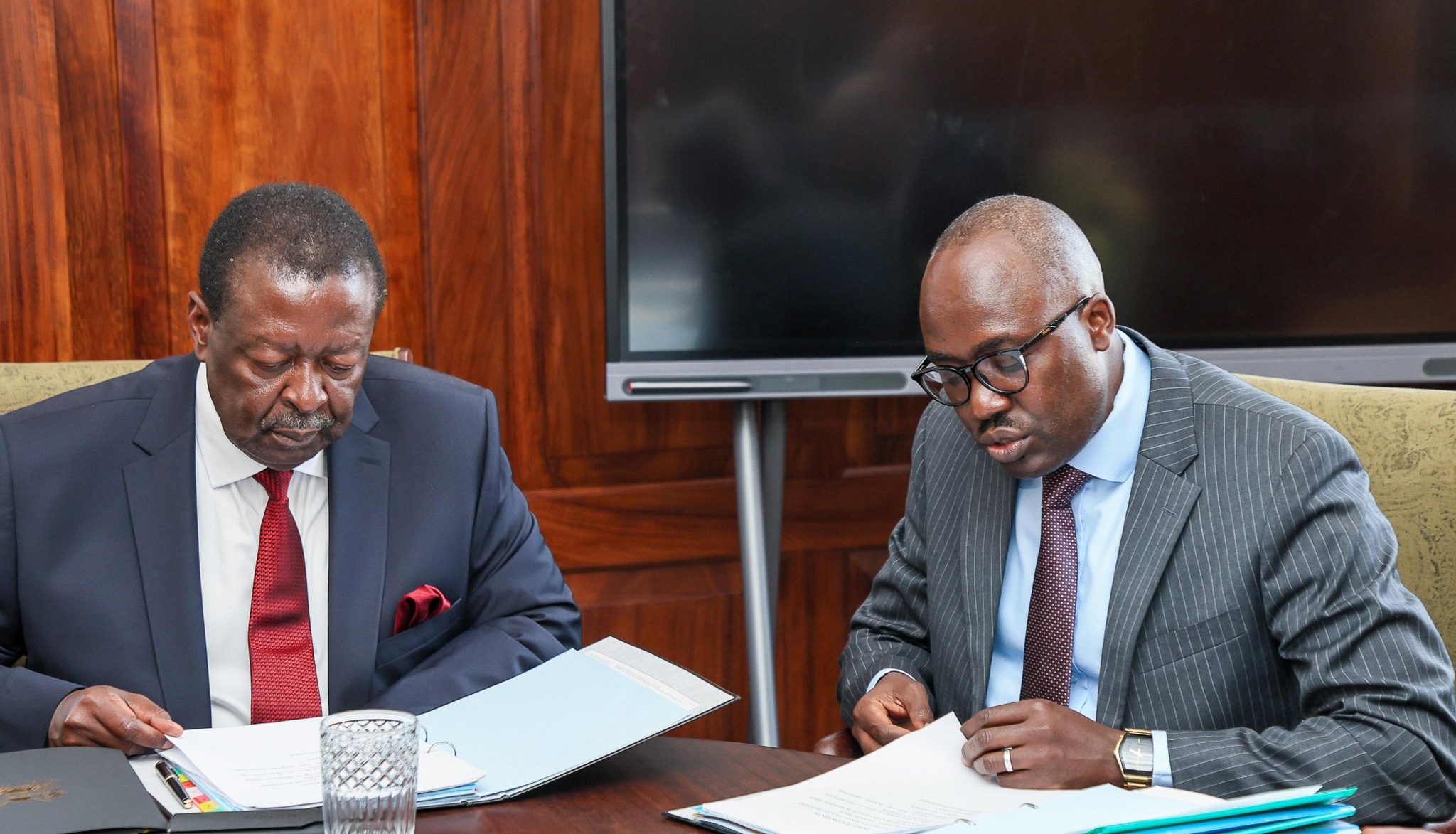
Round-the-clock support for 1,000+ Kenyans facing charges abroad
The government has stepped up efforts to assist Kenyans facing legal challenges abroad. Prime Cabinet Secretary and Cabinet Secretary for Foreign and Diaspora Affairs Musalia Mudavadi has confirmed that citizens in foreign prisons are receiving consular attention through Kenya’s diplomatic missions.
While hosting Stephen Munyakho, a Kenyan who spent 14 years on death row in Saudi Arabia before his release, Mudavadi stressed that Kenya is committed to standing by all its citizens abroad, irrespective of their circumstances.
“It is not factual when someone says the Kenyan government has abandoned its citizens. That’s not true,” Mudavadi stated.
“We have cases of Kenyans facing different challenges in various countries. We work, we communicate, we follow diplomatic channels every day. It’s part of our mandate.”
The Prime Cabinet Secretary clarified that the Ministry of Foreign Affairs does not pass judgment on the innocence or guilt of citizens facing legal troubles abroad. Instead, he said its role is to ensure humane treatment, monitor legal processes, and facilitate support from the moment such cases are reported.
“Our role is to be supportive, to try and facilitate humane treatment, possible release, and to walk with our people through the process,” he noted.
Mudavadi disclosed that nearly 1,000 Kenyans are currently incarcerated across various countries, each subject to different legal systems.
He underscored the government’s ongoing efforts, through embassies, to monitor cases, attend hearings, and uphold the right to a fair trial.
In March, Mudavadi presented a document detailing the charges faced by affected Kenyans. He urged Parliament to consider legal reforms that would enhance protections for the diaspora and provide legal aid for citizens facing prosecution abroad.
The Cabinet Secretary further advocated for the integration of the Foreign Affairs docket within the National Security Council to bolster its critical operations.
“Most of those arrested don’t fully understand the legal risks. We provide translation support, monitor court proceedings, and keep families back home informed. We may not always succeed, but we do our best,” said Mudavadi.
